Unit 5 Education Lesson 1 Enlightening a Mind (Reading)课件(共40张,内嵌视频)北师大版(2019)选择性必修第二册(共41页)
文档属性
| 名称 | Unit 5 Education Lesson 1 Enlightening a Mind (Reading)课件(共40张,内嵌视频)北师大版(2019)选择性必修第二册(共41页) | 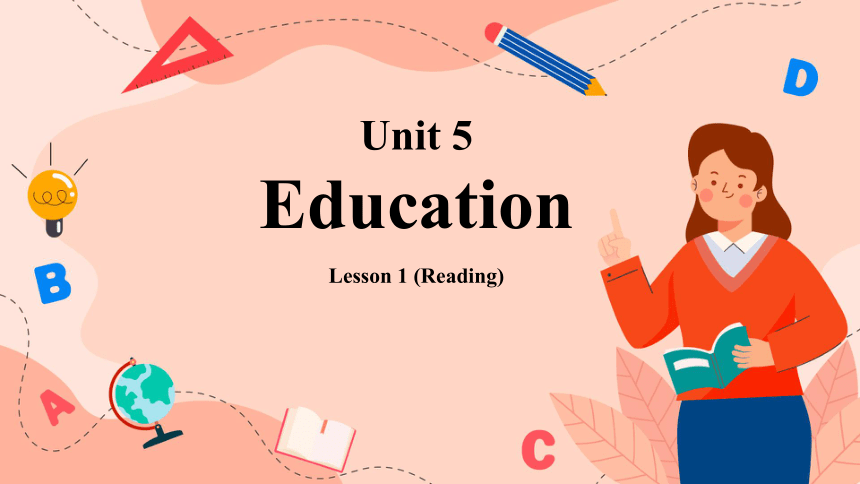 | |
| 格式 | pptx | ||
| 文件大小 | 84.2MB | ||
| 资源类型 | 教案 | ||
| 版本资源 | 北师大版(2019) | ||
| 科目 | 英语 | ||
| 更新时间 | 2025-08-01 11:10:30 | ||
图片预览

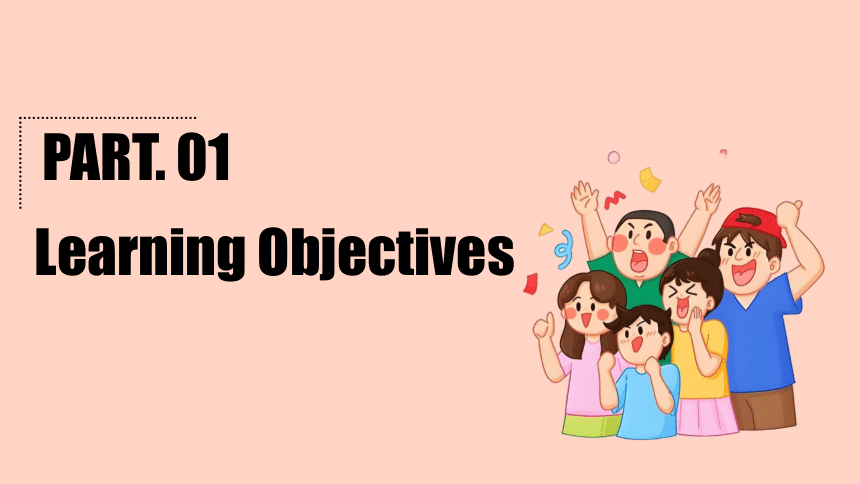
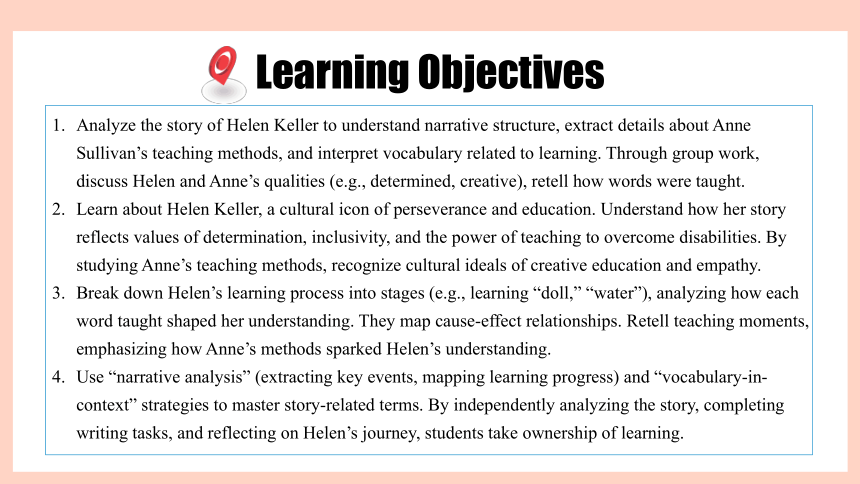
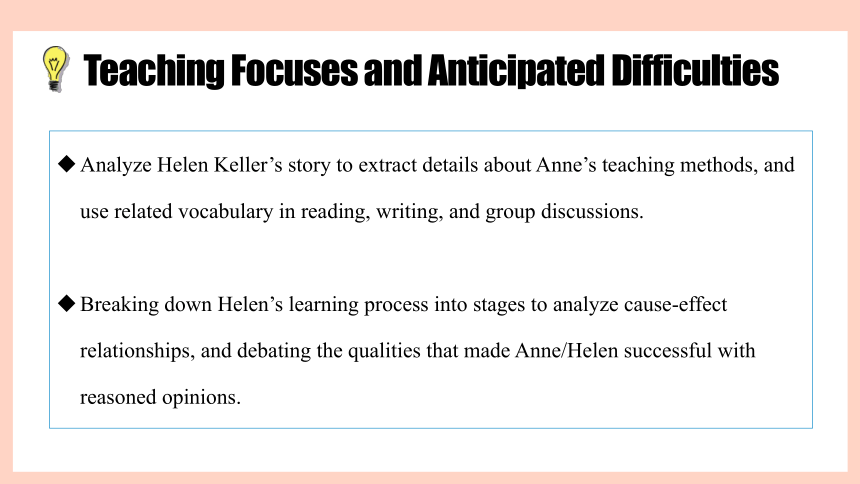
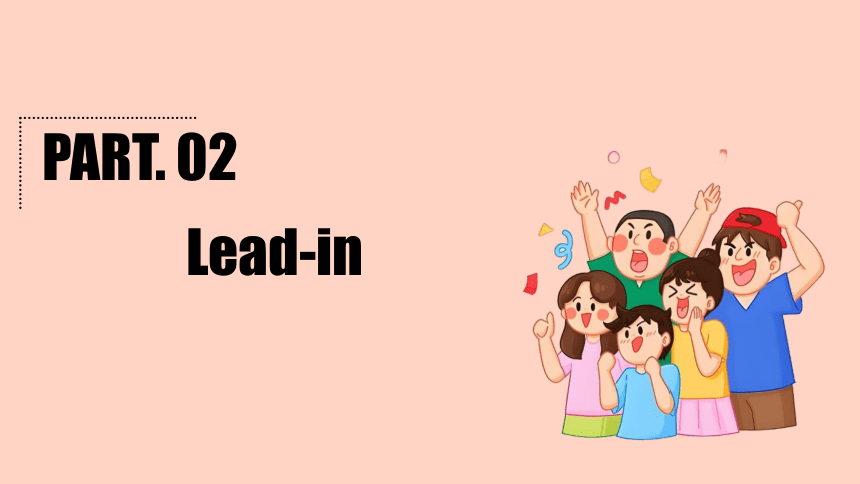
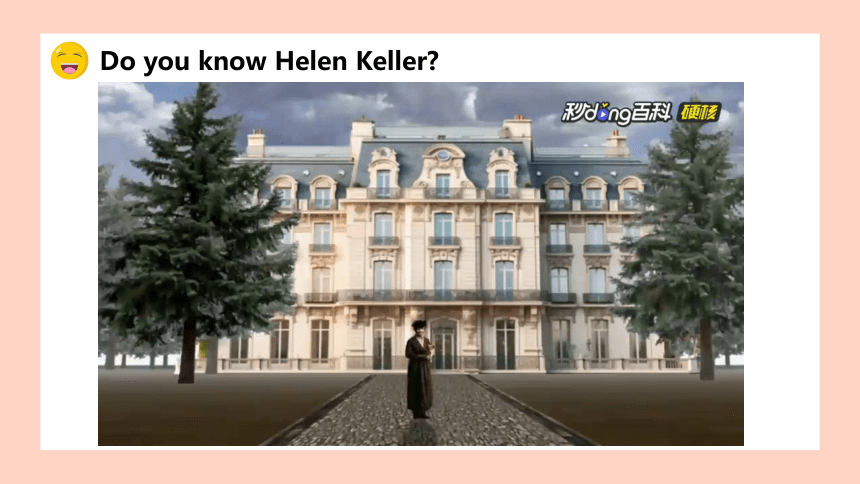
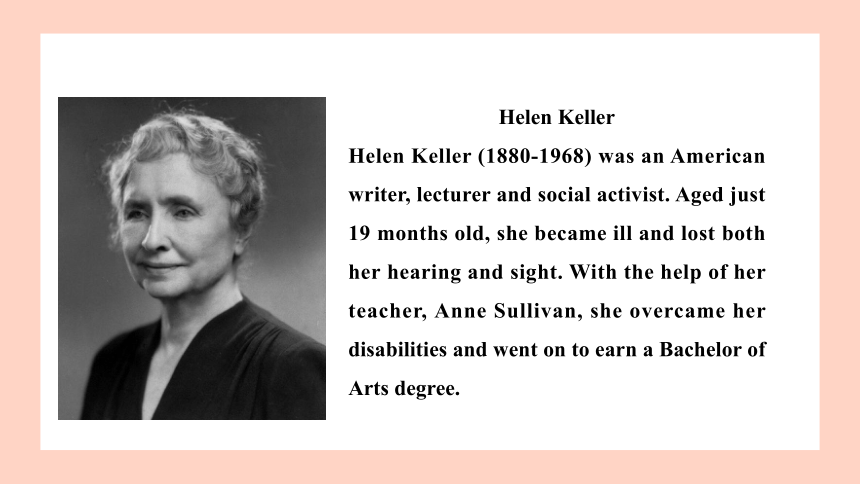
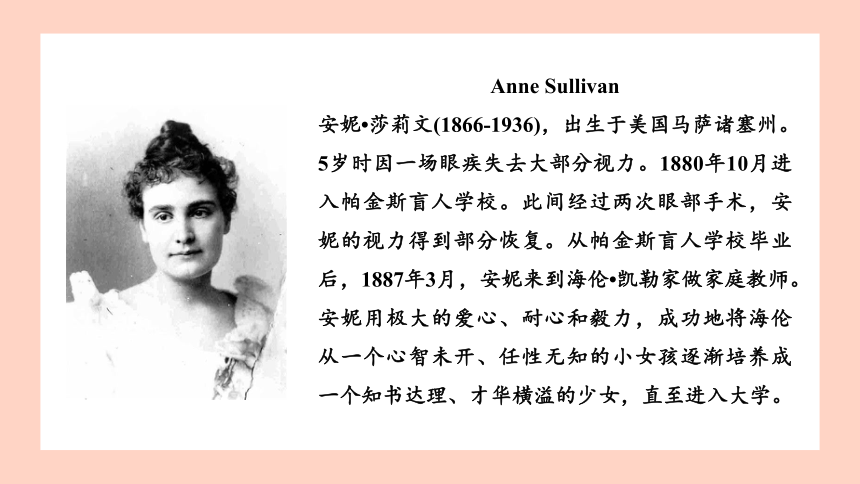
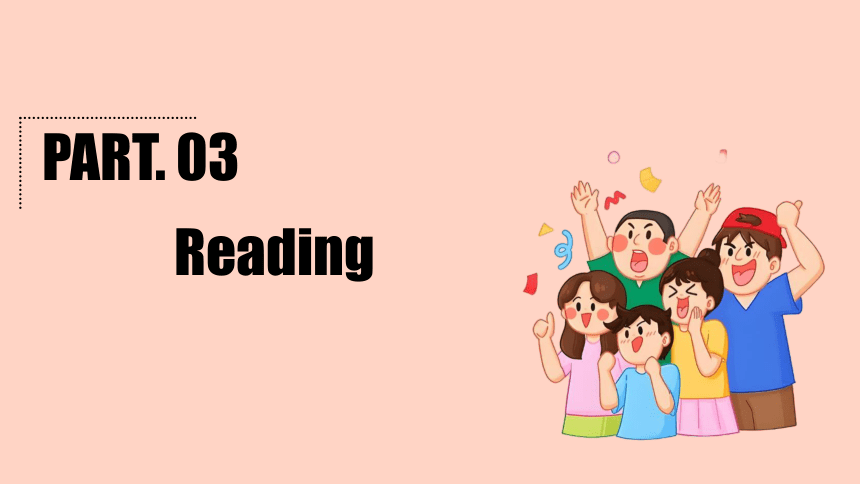
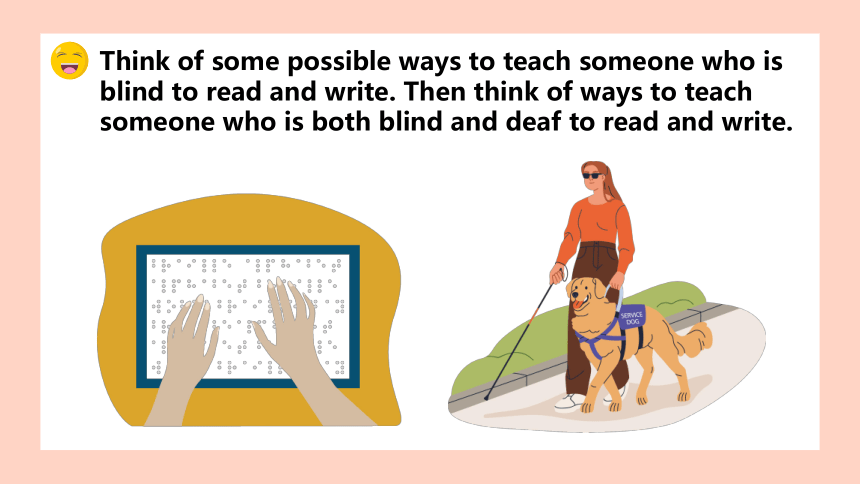
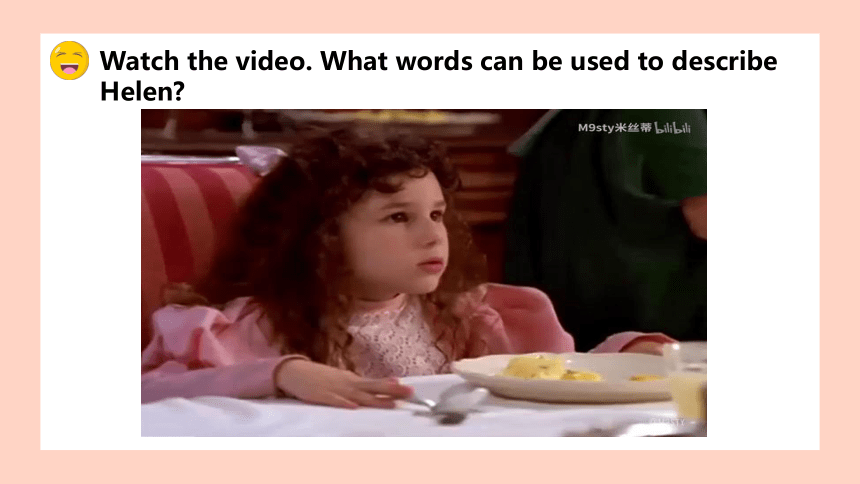
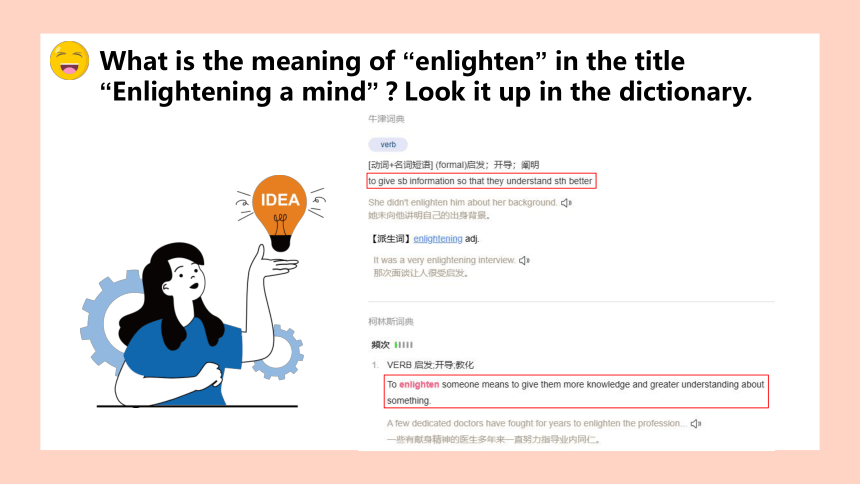
文档简介
(共40张PPT)
Unit 5
Education
Lesson 1 (Reading)
Learning Objectives
PART. 01
Understand the daily study and life of British middle school students by watching videos. Based on your own daily study and life, compare the study and life in Chinese and British schools, and find out the similarities and differences between the two. Talk about your first impression of high school life, and have a preliminary perception of the study and life in the senior high school stage.
Learning Objectives
Analyze the story of Helen Keller to understand narrative structure, extract details about Anne Sullivan’s teaching methods, and interpret vocabulary related to learning. Through group work, discuss Helen and Anne’s qualities (e.g., determined, creative), retell how words were taught.
Learn about Helen Keller, a cultural icon of perseverance and education. Understand how her story reflects values of determination, inclusivity, and the power of teaching to overcome disabilities. By studying Anne’s teaching methods, recognize cultural ideals of creative education and empathy.
Break down Helen’s learning process into stages (e.g., learning “doll,” “water”), analyzing how each word taught shaped her understanding. They map cause-effect relationships. Retell teaching moments, emphasizing how Anne’s methods sparked Helen’s understanding.
Use “narrative analysis” (extracting key events, mapping learning progress) and “vocabulary-in-context” strategies to master story-related terms. By independently analyzing the story, completing writing tasks, and reflecting on Helen’s journey, students take ownership of learning.
Understand the daily study and life of British middle school students by watching videos. Based on your own daily study and life, compare the study and life in Chinese and British schools, and find out the similarities and differences between the two. Talk about your first impression of high school life, and have a preliminary perception of the study and life in the senior high school stage.
Teaching Focuses and Anticipated Difficulties
Analyze Helen Keller’s story to extract details about Anne’s teaching methods, and use related vocabulary in reading, writing, and group discussions.
Breaking down Helen’s learning process into stages to analyze cause-effect relationships, and debating the qualities that made Anne/Helen successful with reasoned opinions.
Lead-in
PART. 02
Do you know Helen Keller
Helen Keller
Helen Keller (1880-1968) was an American writer, lecturer and social activist. Aged just 19 months old, she became ill and lost both her hearing and sight. With the help of her teacher, Anne Sullivan, she overcame her disabilities and went on to earn a Bachelor of Arts degree.
Anne Sullivan
安妮 莎莉文(1866-1936),出生于美国马萨诸塞州。5岁时因一场眼疾失去大部分视力。1880年10月进入帕金斯盲人学校。此间经过两次眼部手术,安妮的视力得到部分恢复。从帕金斯盲人学校毕业后,1887年3月,安妮来到海伦 凯勒家做家庭教师。安妮用极大的爱心、耐心和毅力,成功地将海伦从一个心智未开、任性无知的小女孩逐渐培养成一个知书达理、才华横溢的少女,直至进入大学。
Reading
PART. 03
Think of some possible ways to teach someone who is blind to read and write. Then think of ways to teach someone who is both blind and deaf to read and write.
Watch the video. What words can be used to describe Helen
What is the meaning of “enlighten” in the title “Enlightening a mind”?Look it up in the dictionary.
Pair Work Read paragraphs 1-2 of the story. Discuss Helen Keller and her teacher's characteristics and personalities.
Helen was frustrated, stubborn and troublesome. She got angry easily when she was not understood.
Anne was a superb teacher who could understand Helen's difficulties. She was sympathetic.
Read the rest of the story. Answer the questions.
1. How many words were taught to Helen What were they
Four words were taught to Helen in the story: ”doll”, “water”, ”love” and “think”.
2. Which words were easier to learn Which were more difficult Explain why.
The words “doll” and “water” were easier to learn, because Helen could touch them. The words “love” and “think” were more difficult, because they were complex and abstract concept and couldn't be touched.
Choose the best answer for the following questions according to the passage.
1. Why did Helen often break things
A. She wasn’t understood by others.
B. She couldn’t explain herself in words.
C. She wanted to show her existence.
D. She wasn’t satisfied with her parents.
2. How did Sullivan teach Helen words at first
A. Show Helen pictures or real objects.
B. Explain its meaning and ideas patiently.
C. Help Helen to feel the objects while teaching.
D. Try all kinds of methods and go to different places.
Choose the best answer for the following questions according to the passage.
3. What’s the purpose of mentioning the words “love” and “think”
A. To prove what is the best way to teach a blind and deaf child.
B. To show how bright Helen was though she was not in good health.
C. To set an example for students to understand abstract terms.
D. To show how Sullivan taught Helen to understand abstract terms.
4. What can you infer from the story of Helen Keller
A. She is blind and deaf but a lovely girl.
B. She is easy to lose temper.
C. She is stupid because she learns so slowly.
D. It’s hard for her to learn and her teacher is patient.
Complete the diagram.
let Helen play with the doll, and then spelt the letters “D-O-L-L” on her hand
put one of Helen’s hands under the water. As the water flowed over Helen’s hand, Anne spelt out “W-A-T-E-R” into Helen’s other hand
she drew me closer to her and said, “It is here”, pointing to my heart
but you feel the sweetness that it pours into everything. Without love you would not be happy or want to play
touched Helen’s forehead and wrote the word “think” on her hand
knew that the word was the name of the process that was going on in her head
A short video about how Helen was learning the words.
Complete the diagram about how the learning process affected Helen by choosing from the expressions.
a. felt hope and joy
b. felt puzzled
c. had a breakthrough
d. thought it was a game
e. got the world of words opened up to her
f. understood the beautiful truth of the word
g. knew the meaning of the word in a flash
h. felt it was monkey-like imitation
d
h
a e
b f
c
g
Group Work Each member chooses one word. Tell the rest of the group how Anne taught the word and what impact the learning process had on Helen.
doll
water
love
think
How many parts can the story be divided into What is each part mainly about Underline the signal expressions that connect the description of Helen's learning processes.
The text can be divided into ______ parts:
Part 1 (Para. 1)
Part 2 (Para. 2)
Part 3 (Para. 3-5)
Part 4 (Para. 6-11)
Helen Keller’s problem.
Helen’s teacher, Anne Sullivan.
How Anne taught Helen the words which can be touched.
How Anne taught Helen the words which can not be touched.
4
Group Work What qualities do you think Helen and Anne showed in the story Choose from the list below. Find evidence to support your opinion.
determined perseverant kind patient diligent willing creative
I think that Helen was determined to try to understand a word. She kept asking Anne questions so that she could understand the word “think”.
I think Anne was perseverant, patient and creative because she kept trying different ways and waiting for Helen to discover what words are.
Fill in the blanks with the words from the story.
When Helen was young she lost her sight and hearing. With these 1_____________ to her communication, Helen's behaviour was often 2_____________ and sometimes she was 3_____________, stubborn and angry with a 4____________ to break things when she was not understood. Anne Sullivan was a 5__________ teacher. Anne's technique was simple and 6________________. She put an object into Helen's hand and spelt out the word on her other hand. The 7___________ knowledge she taught Helen gave her hope and joy. From “doll” and “water”, Helen's knowledge and 8_____________ expanded and this changed her 9_________ process. As Helen grasped the key to language, she discovered more 10__________ words. Helen now understood the beautiful truth of the word “love”.
restrictions
unbearable
troublesome
tendency
superb
straightforward
precious
vocabulary
thinking
abstract
Vocabulary
1. restriction
restrict v. 限制;约束;限定
restrict oneself to 限制某人自己
restricted adj. 有限制的,受限定的
(be) restricted to 限于
例题:
The new __________(restrict) on single-use plastics aims to reduce environmental pollution in the city.
restriction
Vocabulary
2. tendency
have a tendency to do sth 有做某事的倾向
tend vt. 照管,护理;倾向,趋向;往往会
tend to do sth 有做某事的倾向;有做某事的趋势
tend to/towards sth 趋向/倾向某事
例题:
Students tend ________(feel) nervous before important exams, even if they have prepared well.
to feel
Vocabulary
3. relate
relate A to B 把A和B系起来
relate sth (to sb) (给某人)讲述某事
relation n. 关系;联系;亲属
in relation to 关于;与……相比;涉及
例题:
We need to analyze the ________(relate) between market demand and product pricing before making a decision.
relation
Vocabulary
4. excitement
to one’s excitement 令某人激动的是
excite v. 使(某人)兴奋,刺激
exciting adj. 令人兴奋/激动的
excited adj. 感到兴奋/激动的
例题:
The announcement of the school trip filled the classroom with __________(excite), with students chatting eagerly.
excitement
Vocabulary
5. painful
pain n. 疼痛;痛苦,苦恼
have pains/a pain in the+身体部位 ……部位疼
be in pain 感到疼痛中
with great pain 煞费苦心地
spare no pains 不遗余力,全力以赴
take pains to do sth 下苦功做某事
例题:
The ________(pain) injury in her ankle, caused by a misstep during the race, forced her to quit the competition and rest for weeks.
painful
Vocabulary
6. enthusiastic
be enthusiastic about (doing) sth 对(做)某事热情/满腔热忱
enthusiasm n. 热情;热忱
enthusiast n. 热衷者;热心者
例题:
She is enthusiastic ________ community service, volunteering weekly at the shelter and organizing charity drives.
about
Vocabulary
7. expand
expand on/upon 详细说明
expand into... 扩展为/到……
expansion n. 扩展;扩大;发展;膨胀
expansive adj. 扩张性的;广阔的;全面的
例题:
The _________(expand) of 5G networks across rural areas will enable faster internet access, bridging the digital gap between cities and countryside.
expansion
Vocabulary
8. puzzle
puzzle about/over 仔细琢磨;苦苦思索
puzzle n. 谜;难题
be in a puzzle 感到困惑;不知如何是好
puzzled adj. 感到迷惑的
puzzling adj. 令人迷惑的
例题:
Her ________(puzzle) reaction to the joke told us she hadn’t understood the cultural reference hidden in it.
puzzled
Vocabulary
9. disappointed
be disappointed at sth. 对某事感到失望
be disappointed to do sth. 对做某事感到失望
disappointing adj. 令人失望的
disappoint vt. 使失望
disappointment n. 失望
to one's disappointment 令某人失望的是
例题:
She was disappointed ______ the low score of her physics exam, as she had spent weeks preparing for it.
at
Exercise
PART. 04
1. Her s_______(极好的) essay on urban pollution won first prize, impressing judges with its clear structure, original research data, and practical solutions.
2. Many students struggle with a_________(抽象的) thinking in philosophy class, as it requires connecting distant ideas instead of memorizing facts.
3. We i________(起初) intended to hold the party outdoors, however, the forecast of heavy rain forced us to move it to the school hall.
4. This data analysis t_________(技巧) helps identify patterns that might otherwise remain hidden in large datasets.
uperb
Exercise: 单词拼写
bstract
nitially
echnique
1. Teenagers are ___________(apparent) spending less time reading books, according to a survey showing a 30% drop in library visits over the past year.
2. The team was ____________(disappoint) when their outdoor picnic was canceled due to rain, especially since they’d prepared food and games for weeks.
3. Online shopping has __________(gradual) replaced traditional stores for many people, with more families choosing to order groceries and clothes through apps.
4. Modern teenagers show a __________(tend) to spend more time on social media than engaging in outdoor activities, a trend worrying many parents.
apparently
Exercise: 用所给词的适当形式填空
disappointed
gradually
tendency
Summary
PART. 05
添加标题
ADD THE TITLE HERE
Lesson 1 (Reading)
Vocabulary
Analyze the story of Helen Keller to extract details about Anne Sullivan’s teaching methods.
Discuss Helen and Anne’s qualities (e.g., determined, creative), retell how words were taught.
Reading
restriction, tendency, relate, excitement, painful, enthusiastic, expand, puzzle, disappointed
Homework
PART. 06
What have you learnt from Helen Keller Write a short essay and share with your partner.
Homework
See you next class!
Unit 5
Education
Lesson 1 (Reading)
Learning Objectives
PART. 01
Understand the daily study and life of British middle school students by watching videos. Based on your own daily study and life, compare the study and life in Chinese and British schools, and find out the similarities and differences between the two. Talk about your first impression of high school life, and have a preliminary perception of the study and life in the senior high school stage.
Learning Objectives
Analyze the story of Helen Keller to understand narrative structure, extract details about Anne Sullivan’s teaching methods, and interpret vocabulary related to learning. Through group work, discuss Helen and Anne’s qualities (e.g., determined, creative), retell how words were taught.
Learn about Helen Keller, a cultural icon of perseverance and education. Understand how her story reflects values of determination, inclusivity, and the power of teaching to overcome disabilities. By studying Anne’s teaching methods, recognize cultural ideals of creative education and empathy.
Break down Helen’s learning process into stages (e.g., learning “doll,” “water”), analyzing how each word taught shaped her understanding. They map cause-effect relationships. Retell teaching moments, emphasizing how Anne’s methods sparked Helen’s understanding.
Use “narrative analysis” (extracting key events, mapping learning progress) and “vocabulary-in-context” strategies to master story-related terms. By independently analyzing the story, completing writing tasks, and reflecting on Helen’s journey, students take ownership of learning.
Understand the daily study and life of British middle school students by watching videos. Based on your own daily study and life, compare the study and life in Chinese and British schools, and find out the similarities and differences between the two. Talk about your first impression of high school life, and have a preliminary perception of the study and life in the senior high school stage.
Teaching Focuses and Anticipated Difficulties
Analyze Helen Keller’s story to extract details about Anne’s teaching methods, and use related vocabulary in reading, writing, and group discussions.
Breaking down Helen’s learning process into stages to analyze cause-effect relationships, and debating the qualities that made Anne/Helen successful with reasoned opinions.
Lead-in
PART. 02
Do you know Helen Keller
Helen Keller
Helen Keller (1880-1968) was an American writer, lecturer and social activist. Aged just 19 months old, she became ill and lost both her hearing and sight. With the help of her teacher, Anne Sullivan, she overcame her disabilities and went on to earn a Bachelor of Arts degree.
Anne Sullivan
安妮 莎莉文(1866-1936),出生于美国马萨诸塞州。5岁时因一场眼疾失去大部分视力。1880年10月进入帕金斯盲人学校。此间经过两次眼部手术,安妮的视力得到部分恢复。从帕金斯盲人学校毕业后,1887年3月,安妮来到海伦 凯勒家做家庭教师。安妮用极大的爱心、耐心和毅力,成功地将海伦从一个心智未开、任性无知的小女孩逐渐培养成一个知书达理、才华横溢的少女,直至进入大学。
Reading
PART. 03
Think of some possible ways to teach someone who is blind to read and write. Then think of ways to teach someone who is both blind and deaf to read and write.
Watch the video. What words can be used to describe Helen
What is the meaning of “enlighten” in the title “Enlightening a mind”?Look it up in the dictionary.
Pair Work Read paragraphs 1-2 of the story. Discuss Helen Keller and her teacher's characteristics and personalities.
Helen was frustrated, stubborn and troublesome. She got angry easily when she was not understood.
Anne was a superb teacher who could understand Helen's difficulties. She was sympathetic.
Read the rest of the story. Answer the questions.
1. How many words were taught to Helen What were they
Four words were taught to Helen in the story: ”doll”, “water”, ”love” and “think”.
2. Which words were easier to learn Which were more difficult Explain why.
The words “doll” and “water” were easier to learn, because Helen could touch them. The words “love” and “think” were more difficult, because they were complex and abstract concept and couldn't be touched.
Choose the best answer for the following questions according to the passage.
1. Why did Helen often break things
A. She wasn’t understood by others.
B. She couldn’t explain herself in words.
C. She wanted to show her existence.
D. She wasn’t satisfied with her parents.
2. How did Sullivan teach Helen words at first
A. Show Helen pictures or real objects.
B. Explain its meaning and ideas patiently.
C. Help Helen to feel the objects while teaching.
D. Try all kinds of methods and go to different places.
Choose the best answer for the following questions according to the passage.
3. What’s the purpose of mentioning the words “love” and “think”
A. To prove what is the best way to teach a blind and deaf child.
B. To show how bright Helen was though she was not in good health.
C. To set an example for students to understand abstract terms.
D. To show how Sullivan taught Helen to understand abstract terms.
4. What can you infer from the story of Helen Keller
A. She is blind and deaf but a lovely girl.
B. She is easy to lose temper.
C. She is stupid because she learns so slowly.
D. It’s hard for her to learn and her teacher is patient.
Complete the diagram.
let Helen play with the doll, and then spelt the letters “D-O-L-L” on her hand
put one of Helen’s hands under the water. As the water flowed over Helen’s hand, Anne spelt out “W-A-T-E-R” into Helen’s other hand
she drew me closer to her and said, “It is here”, pointing to my heart
but you feel the sweetness that it pours into everything. Without love you would not be happy or want to play
touched Helen’s forehead and wrote the word “think” on her hand
knew that the word was the name of the process that was going on in her head
A short video about how Helen was learning the words.
Complete the diagram about how the learning process affected Helen by choosing from the expressions.
a. felt hope and joy
b. felt puzzled
c. had a breakthrough
d. thought it was a game
e. got the world of words opened up to her
f. understood the beautiful truth of the word
g. knew the meaning of the word in a flash
h. felt it was monkey-like imitation
d
h
a e
b f
c
g
Group Work Each member chooses one word. Tell the rest of the group how Anne taught the word and what impact the learning process had on Helen.
doll
water
love
think
How many parts can the story be divided into What is each part mainly about Underline the signal expressions that connect the description of Helen's learning processes.
The text can be divided into ______ parts:
Part 1 (Para. 1)
Part 2 (Para. 2)
Part 3 (Para. 3-5)
Part 4 (Para. 6-11)
Helen Keller’s problem.
Helen’s teacher, Anne Sullivan.
How Anne taught Helen the words which can be touched.
How Anne taught Helen the words which can not be touched.
4
Group Work What qualities do you think Helen and Anne showed in the story Choose from the list below. Find evidence to support your opinion.
determined perseverant kind patient diligent willing creative
I think that Helen was determined to try to understand a word. She kept asking Anne questions so that she could understand the word “think”.
I think Anne was perseverant, patient and creative because she kept trying different ways and waiting for Helen to discover what words are.
Fill in the blanks with the words from the story.
When Helen was young she lost her sight and hearing. With these 1_____________ to her communication, Helen's behaviour was often 2_____________ and sometimes she was 3_____________, stubborn and angry with a 4____________ to break things when she was not understood. Anne Sullivan was a 5__________ teacher. Anne's technique was simple and 6________________. She put an object into Helen's hand and spelt out the word on her other hand. The 7___________ knowledge she taught Helen gave her hope and joy. From “doll” and “water”, Helen's knowledge and 8_____________ expanded and this changed her 9_________ process. As Helen grasped the key to language, she discovered more 10__________ words. Helen now understood the beautiful truth of the word “love”.
restrictions
unbearable
troublesome
tendency
superb
straightforward
precious
vocabulary
thinking
abstract
Vocabulary
1. restriction
restrict v. 限制;约束;限定
restrict oneself to 限制某人自己
restricted adj. 有限制的,受限定的
(be) restricted to 限于
例题:
The new __________(restrict) on single-use plastics aims to reduce environmental pollution in the city.
restriction
Vocabulary
2. tendency
have a tendency to do sth 有做某事的倾向
tend vt. 照管,护理;倾向,趋向;往往会
tend to do sth 有做某事的倾向;有做某事的趋势
tend to/towards sth 趋向/倾向某事
例题:
Students tend ________(feel) nervous before important exams, even if they have prepared well.
to feel
Vocabulary
3. relate
relate A to B 把A和B系起来
relate sth (to sb) (给某人)讲述某事
relation n. 关系;联系;亲属
in relation to 关于;与……相比;涉及
例题:
We need to analyze the ________(relate) between market demand and product pricing before making a decision.
relation
Vocabulary
4. excitement
to one’s excitement 令某人激动的是
excite v. 使(某人)兴奋,刺激
exciting adj. 令人兴奋/激动的
excited adj. 感到兴奋/激动的
例题:
The announcement of the school trip filled the classroom with __________(excite), with students chatting eagerly.
excitement
Vocabulary
5. painful
pain n. 疼痛;痛苦,苦恼
have pains/a pain in the+身体部位 ……部位疼
be in pain 感到疼痛中
with great pain 煞费苦心地
spare no pains 不遗余力,全力以赴
take pains to do sth 下苦功做某事
例题:
The ________(pain) injury in her ankle, caused by a misstep during the race, forced her to quit the competition and rest for weeks.
painful
Vocabulary
6. enthusiastic
be enthusiastic about (doing) sth 对(做)某事热情/满腔热忱
enthusiasm n. 热情;热忱
enthusiast n. 热衷者;热心者
例题:
She is enthusiastic ________ community service, volunteering weekly at the shelter and organizing charity drives.
about
Vocabulary
7. expand
expand on/upon 详细说明
expand into... 扩展为/到……
expansion n. 扩展;扩大;发展;膨胀
expansive adj. 扩张性的;广阔的;全面的
例题:
The _________(expand) of 5G networks across rural areas will enable faster internet access, bridging the digital gap between cities and countryside.
expansion
Vocabulary
8. puzzle
puzzle about/over 仔细琢磨;苦苦思索
puzzle n. 谜;难题
be in a puzzle 感到困惑;不知如何是好
puzzled adj. 感到迷惑的
puzzling adj. 令人迷惑的
例题:
Her ________(puzzle) reaction to the joke told us she hadn’t understood the cultural reference hidden in it.
puzzled
Vocabulary
9. disappointed
be disappointed at sth. 对某事感到失望
be disappointed to do sth. 对做某事感到失望
disappointing adj. 令人失望的
disappoint vt. 使失望
disappointment n. 失望
to one's disappointment 令某人失望的是
例题:
She was disappointed ______ the low score of her physics exam, as she had spent weeks preparing for it.
at
Exercise
PART. 04
1. Her s_______(极好的) essay on urban pollution won first prize, impressing judges with its clear structure, original research data, and practical solutions.
2. Many students struggle with a_________(抽象的) thinking in philosophy class, as it requires connecting distant ideas instead of memorizing facts.
3. We i________(起初) intended to hold the party outdoors, however, the forecast of heavy rain forced us to move it to the school hall.
4. This data analysis t_________(技巧) helps identify patterns that might otherwise remain hidden in large datasets.
uperb
Exercise: 单词拼写
bstract
nitially
echnique
1. Teenagers are ___________(apparent) spending less time reading books, according to a survey showing a 30% drop in library visits over the past year.
2. The team was ____________(disappoint) when their outdoor picnic was canceled due to rain, especially since they’d prepared food and games for weeks.
3. Online shopping has __________(gradual) replaced traditional stores for many people, with more families choosing to order groceries and clothes through apps.
4. Modern teenagers show a __________(tend) to spend more time on social media than engaging in outdoor activities, a trend worrying many parents.
apparently
Exercise: 用所给词的适当形式填空
disappointed
gradually
tendency
Summary
PART. 05
添加标题
ADD THE TITLE HERE
Lesson 1 (Reading)
Vocabulary
Analyze the story of Helen Keller to extract details about Anne Sullivan’s teaching methods.
Discuss Helen and Anne’s qualities (e.g., determined, creative), retell how words were taught.
Reading
restriction, tendency, relate, excitement, painful, enthusiastic, expand, puzzle, disappointed
Homework
PART. 06
What have you learnt from Helen Keller Write a short essay and share with your partner.
Homework
See you next class!
同课章节目录
- Unit 4 Humour
- Lesson 1 What’s So Funny?
- Lesson 2 Why Do We Need Humour?
- Lesson 3 My Favourite Comedian
- Unit 5 Education
- Lesson 1 Enlightening a Mind
- Lesson 2 The Objectives of Education
- Lesson 3 Understanding
- Unit 6 The Media
- Lesson 1 From Page to Screen
- Lesson 2 Questions about Media
- Lesson 3 The Advertising Game
